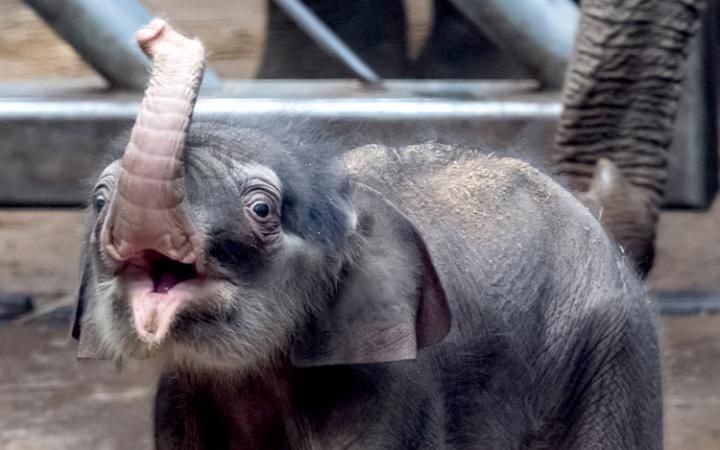Speak out for Animals (SOFA) is concerned about the capture of baby Elephants in Zimbabwe that will be sold off to China. The animal advocates made the statement in order to highlight the avoidable suffering that the baby elephants will be subjected to.
The Guardian recently released a shocking and upsetting footage of a baby Elephant that had been captured in the wild. The video shows the calf being awfully separated from its family by helicopters, shot with a sedative rifle and kidnapped.
“Taking baby elephants from their families forcibly is not acceptable and the government must put an end to this inhuman practice. Elephants have proven to be social beings capable of empathy. Hence snatching a baby Elephant will not only be a traumatic experience to the calf but to the entire family as well.
“This happened in Zimbabwe, the baby will be sold off to a zoo in China, to live a glum life in captivity for the sole purpose of entertaining humans. The act of selling baby elephants to China is tantamount to sentencing them to a lifetime of torture and abuse or death sentence as past Elephants sent to China have died in zoos due to terrible conditions. It is without doubt that China is a country that has a record of being cruel with animals. Their zoos reek of barbarism in which Elephants are abused to force them to perform tricks that are contrary to their natural behaviour. Consequently the living conditions of animals in these zoos fail to meet their basic welfare needs as access to water and food is limited,” SOFA said.
The capture was done by Zimbabwe wildlife officials, who have claimed that what they did was legal. However, though Zimbabwe is a party to the Convention on International Trade in Endangered Species of Wild Fauna and Flora (CITES), the current situation is contrary to the international best practices and standards it agreed to conform to. In terms of the convention trading of live elephants is only legal if the animals are going to an “appropriate and acceptable” destination, and the sale benefits conservation.
This is indeed contrary to Resolution Conf. 10.21 (Rev. CoP14) which defines and states that ‘appropriate and acceptable destinations’ for live animals should be those that ensure that the animals are humanely treated. Cases of animal abuse clearly shows that China lacks the animal welfare legislation or enforcement mechanisms to protect these wild animals. The purpose of Elephants in zoos and safari parks is solely to bring in money and that will be achieved by all means necessary, means which are actually detrimental to the Elephants.
Elephants are among the most intelligent animals on the planet and a zoo is definitely not a place for them. Studies have shown that Elephants confined to captive environments that are unable to meet their physical and behavioral needs, are vulnerable to stress that affects their physical and psychological health. Nature prescribes that Elephants need a lot of space to move with their home ranges varying from 45 km2 to 1800 km2. , unlike zoos that keep them in isolation and in small enclosures with hard concrete floors. Hence considering the fact that an Elephant’s natural behavior and physical attributes has evolved for survival in the wild, any attempt by zoo facilities to match or recreate these natural experiences falls short.
“SOFA strongly opposes and does not consider these zoos and safari parks in China as “appropriate and acceptable destinations” for Elephant calves from Zimbabwe. Subjecting Elephants to a life time of continuous suffering and abuse is inappropriate and unacceptable. One can only imagine the agony baby Elephants taken from their mothers in the wild will be forced to endure when they get sent to zoos and safari parks in China. Conditions at Chinese zoos are inhumane; workers have been documented abusing animals with some even lashing animals with metal hooks. Therefore, Chinese zoos are neither ‘appropriate’ nor ‘acceptable.” destinations,






